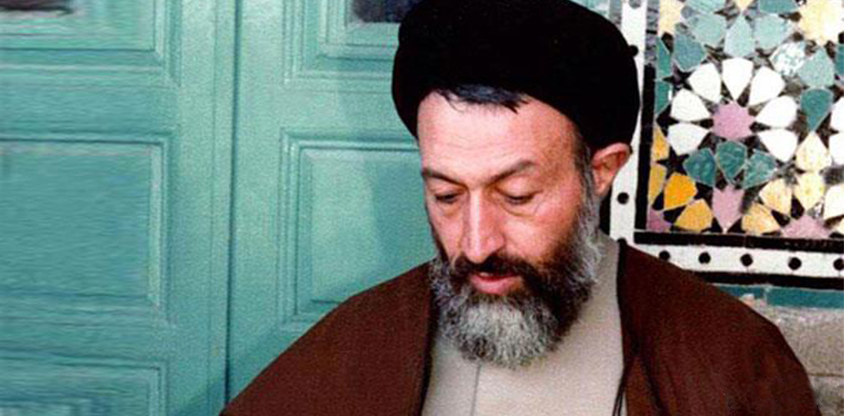
The spokesman of Iran's government called the martyrdom of the then Chief Justice of Iran, Ayatollah Seyyed Mohammad Hosseini Beheshti, a symbol of the assassination of justice and the chemical bombardment of Sardasht as a symbol of the assassination of security.
In his weekly presser on Tuesday, Ali Rabiei said: "In the last four decades, the enemies of Iran have launched a large-scale offensive to assassinate the three fundamental valuable principles; justice, security, and freedom of our nation."
Rabiei called the assassination of martyr Beheshti a symbol of the assassination of justice.
His remarks were on the occasion of the 40th anniversary of a deadly attack by the anti-Iran Mujahedin-e-Khalq Organization (MKO) terrorist group, which killed some Iranian officials, including the then-head of Supreme Judicial Council Ayatollah Mohammad Beheshti.
On June 28, 1981, a powerful bomb exploded at Iran's Islamic Republican Party (IRP) headquarters, where the party's leaders held a meeting.
The bombing killed scores of Iranian officials, including Ayatollah Beheshti.
The MKO has admitted to having carried out the attack.
In a meeting with General Taher Haboush (Saddam's intelligence chief) in 1999, the then-head of MKO Masoud Rajavi said: "As you know, I was in Paris from 1981 to 1986. We were not called terrorists in those years. Although they knew who had blown up the Republican Party in Iran ... they knew who and what political process killed the president and prime minister of the regime while we were in contact with both the White House and the Elysee Palace. They knew well, but they did not call us terrorists at all."
The MKO has made numerous terrorist attacks against Iranian civilians and government officials since the victory of the Islamic Revolution in Iran in 1979. Out of the nearly 17,000 Iranians killed in terrorist attacks over the past four decades, about 12,000 have fallen victim to the terrorist group's acts of terror.
Washington and the European Union have removed the MKO from their lists of terrorist organizations. The anti-Iran terrorists enjoy the freedom of activity in the US and Europe and even hold meetings with officials from the US and EU.
Chemical bombing of Sardasht
Commemorating the anniversary of the chemical bombing of Sardasht, the spokesman of Iran's government called the event a symbol of the assassination of security, saying that it was not limited to it and continued with the support of terrorist groups inside and outside Iran against the security of this nation, and with the cowardly assassination of Martyr Lt. Gen. Qasem Soleimani, they made yet another symbol of it.
The chemical attack took place on June 28, 1987, in the northwestern province of West Azarbaijan. The Iraqi warplanes dropped chemical bombs on four residential areas, which resulted in the killing of over 100 citizens and injury of 8000.
Iran's top official explained further to call economic sanctions a symbol of the assassination of the third valuable principle: freedom, which means freedom from poverty and freedom from fear of losing the right to an honorable and dignified life.
"Of course, we have never surrendered to these evil forces of terrorism and the malicious intentions behind it, and we have no intention of surrendering," highlighted Rabiei.
The government spokesman said: "Today, those Western nations who have granted asylum to the perpetrators of the assassination of Martyr Beheshti and other martyrs of that terrorist incident, and by supporting Saddam Hussein and equipping him with chemical weapons, must apologize to the Iranian people and answer for these crimes."
Furthermore, in recent years, he said that by imposing inhumane sanctions which have endangered the livelihoods of millions of innocent Iranian citizens.
"However, today, we see that not only are they not remorseful, but they still insist on continuing economic sanctions and unjustly harassing our people," the spokesman added.
He stated: "This dark background is enough to understand the roots of Iran's distrust of the West, especially the United States."
Rabiei added: "On the anniversary of the martyrdom of Martyr Beheshti and the chemical attack on Sardasht and the martyrdom of hundreds of other innocent people, we urge all Western governments, especially the US government, to reconsider past wrongdoing and make up for it, which at its starting point is only to end sanctions against our people's economy. We call on them to take a step in the right direction to end the forty years of fruitless terror of freedom, liberty, and independence of a proud nation."
